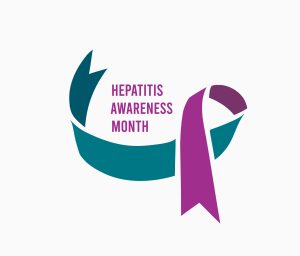 Hepatitis is an inflammatory disease that affects the liver. Many cases of hepatitis are caused by viral or bacterial infections, but it can also be caused by excessive alcohol consumption, exposure to certain toxins, and drug use. Many people may not be aware that they have hepatitis, as symptoms may not appear for weeks or months after developing this disease. Each year, approximately 15,000 people in the United States die from either liver cancer or chronic liver disease caused by hepatitis.
Hepatitis is an inflammatory disease that affects the liver. Many cases of hepatitis are caused by viral or bacterial infections, but it can also be caused by excessive alcohol consumption, exposure to certain toxins, and drug use. Many people may not be aware that they have hepatitis, as symptoms may not appear for weeks or months after developing this disease. Each year, approximately 15,000 people in the United States die from either liver cancer or chronic liver disease caused by hepatitis.
There are five types of hepatitis; each of them may occur in different ways and present a variety of symptoms. These types include:
Hepatitis A, which is typically transmitted through exposure to food, water, or other substances that have been contaminated by the feces of a person who carries the disease. It does not cause chronic liver disease, but does cause acute, debilitating symptoms that, in rare cases, can be fatal.
Hepatitis B, which is spread through contact with the bodily fluids of an infected person; it is also often transmitted from mother to child during birth. Hepatitis B puts infected people at a high risk of death from liver cirrhosis or cancer.
Hepatitis C, a viral infection that can cause both acute and long-term liver problems, such as those that occur in people with hepatitis A and B. It is mainly transmitted through contact with an infected person’s blood. Unlike hepatitis A and B, there is no vaccine to prevent hepatitis C, but it can be treated through antiviral medication.
Hepatitis D, which only occurs in people who already have hepatitis B. It is considered the most severe form of viral hepatitis, putting infected people at the highest risk of experiencing fatal complications, such as liver cirrhosis and cancer.
Hepatitis E, which causes similar symptoms to those of hepatitis A and is transmitted in similar ways, but is caused by a different virus.
The best way to prevent hepatitis is to get vaccinated. If you would like to schedule an appointment with a physician at Flushing Hospital Medical Center to schedule an appointment or learn more, please call (718) 670-5486.
All content of this newsletter is intended for general information purposes only and is not intended or implied to be a substitute for professional medical advice, diagnosis or treatment. Please consult a medical professional before adopting any of the suggestions on this page. You must never disregard professional medical advice or delay seeking medical treatment based upon any content of this newsletter. PROMPTLY CONSULT YOUR PHYSICIAN OR CALL 911 IF YOU BELIEVE YOU HAVE A MEDICAL EMERGENCY.

